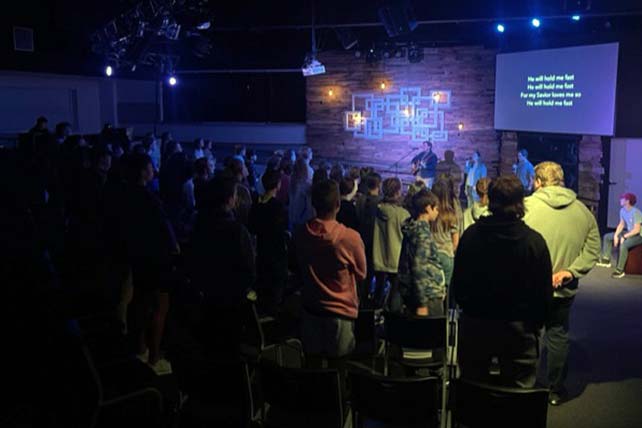“In my observation, freshman students often feel underqualified and underequipped for life in general, but specifically in terms of evangelism,” Shoemaker said.
“Many students come in having never shared the Gospel and they do not know how. They either weren’t equipped or were equipped but didn’t care. There may be something in our church programming that’s causing this. There seems to be a sense in which prolonged adolescence is extending to faith as well.”
Shoemaker said despite the challenges that exist within these transition seasons, Lifepointe continues to encourage students to love Christ and His Church.
“We want to help our students cultivate loyalty and love toward Jesus, and then loyalty to His Church as well,” he said. “We want to help them cultivate authenticity and help them obey Jesus through the spiritual disciplines.
“We try to show them every church has a cooperative network or church partnerships of some kind whatever denomination they are. We need to communicate at some level what we do as the SBC and why it matters.”
Jay Barbier, youth specialist for the Tennessee Baptist Mission Board, told Baptist Press these data trends should not merely paralyze Convention leaders in fear, but rather mobilize them to respond.
“I think it’s something that based upon research like this we need to be proactive instead of reactive,” Barbier said.
“If anything, seeing this should give us an urgency to ask how do we engage in more Gospel conversations?
“I would just say we have to be careful not see this as doom and gloom. It should open our eyes. We live in a time where people need to hear the message of hope. People are desperately seeking hope from somewhere, and as Christians we have the greatest hope in the world in Jesus. How can we turn everyday conversations into Gospel conversations? If we bring students with us while engaging in that, they are more likely to do that themselves.”
This article originally appeared at Baptist Press.

